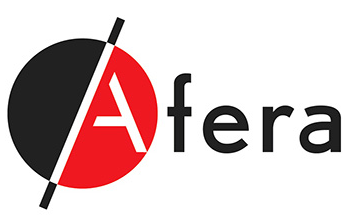
BREF update May 2019
E.U. BREF STS update: Afera takes action for the tape industry
 If solvent limits were altered according to European Law, all coating industries would be affected. Adhesive tape manufacturers would be required to make large investments to adhere to amended solvent restriction policies. Thus far, this has not happened because of Afera’s participation on behalf of our members in revising the European BREF STS, a document of more than 1,000 pages that contains the minimum standards for solvent-based coating of everything, including abrasives and films, in large quantities for Europe.
If solvent limits were altered according to European Law, all coating industries would be affected. Adhesive tape manufacturers would be required to make large investments to adhere to amended solvent restriction policies. Thus far, this has not happened because of Afera’s participation on behalf of our members in revising the European BREF STS, a document of more than 1,000 pages that contains the minimum standards for solvent-based coating of everything, including abrasives and films, in large quantities for Europe.
“The entire process of updating the BREF STS exemplifies the positive results for industry if they are actively involved, if we work together on co-ordinating input,” said Afera Secretary-General Astrid Lejeune of Afera’s European BREF STS revision management conducted through the Regulatory Affairs Working Group in Afera’s Technical Committee. “There are clear possibilities for getting the tape industry’s point of view across, for conveying our expertise.”
“Backing this with information and data from industry experts—and industry representatives sitting at the table as they did in Seville—carries even more weight,” added Afera President Evert Smit (Lohmann GmbH & Co KG).
The original Sevilla Process
The European Commission (E.C.), E.U. Member States and representatives of European industry and environmental NGOs gather at the European Integrated Pollution Prevention and Control (IPPC) Bureau, part of the E.U.'s Joint Research Centre (JRC) in Seville, Spain. Together, they make up Technical Working Groups (TWGs), which provide input into the drafting of documents known as BREFs in the “Sevilla Process”.
The European BREF STS (the European Commission’s Reference Document on Best Available Techniques on Surface Treatment Using Organic Solvents), adopted in August 2007, covers “adhesive application in the manufacture of abrasives and adhesive tapes,” the latter specifically in Chapter 5, “Manufacturing of Adhesive Tape”. One of the main outputs of the Sevilla Process, the entire BREF has been under revision since late 2014, and because of harmonisation of environmental standards, has an impact on national laws affecting production plants with a use capacity of organic solvents of more than 150 kg/hour or more than 200 tonnes (200,000 kg)/year.
During the original drafting process, Afera engaged Peter Broschk, with the support of a consultant from Ökopol GmbH, Hamburg, to submit Afera’s input via Germany’s Environment Agency (UBA) to the Sevilla Process. German tape manufacturer tesa provided a reference plant. At the time, Mr. Broschk worked directly with the European IPPC Bureau to finalise the process on behalf of Afera.
 Update process: draft 1
Update process: draft 1
The bulk of Afera’s regulatory affairs activity of the last few months has been concentrated on the current European BREF STS review process. Afera has co-ordinated the updating of the chapter on adhesive tapes to make it workable for the industry. Afera Public Affairs Manager Mark Macaré attends both ESVOC (European Solvents Downstream Users Group, of which Afera is a member) BREF STS Working Group (WG) and BREF TWG meetings on the Association’s behalf.
Adhesive tape manufacturers and adhesive tape producers must provide data to prevent ultimately making their lives more difficult . Input into the first draft revision was primarily organised through Mr. Smit, Afera Technical Committee Chairman Reinhard Storbeck (tesa SE), Mr. Macaré (Lejeune Association Management) and IVK (the German Adhesives Association), who reviewed the adhesive tapes chapter to see if what the E.C. had come up with was actually workable for the industry. They determined that further input into the document needed to be provided by the tape industry, specifically updates on new and existing techniques, as well as updates of the general description of the sector, its size and applied processes and techniques.
 Update process: draft 2
Update process: draft 2
With the help of tesa, Afera provided input into the first draft on behalf of the tape manufacturing industry in December 2017. This included a statement from Afera, tesa and Lohmann in support of our submitted comments, urging that they be taken seriously. High priority issues in the draft included mistakes made in the range of VOC consumption values and unrealistic NOx and CO2 emissions limits for adhesive tapes.
All comments on the first draft were open for review by all parties, and after a few meetings and workshops in 2018 covering the first draft of the BREF STS Update, the JRC released revised BAT conclusions on 9 October 2018 and a second draft of the BREF STS on 13 November 2018.
Current update process: finalising the revised BREF STS document
The meeting with the JRC in Seville to finalise the revised BREF STS document took place 10-14 December 2018. It was the final chance for Afera to provide input in order to clarify the position of adhesive tape manufacturers. Mr. Macaré co-ordinated Afera’s input provided by tesa and Lohmann for the E.C. by 9 December. The broad collation of which Afera is a member, ESVOC, met just prior to the Seville meeting to discuss strategy and alliance-building, especially among the E.U. Member States. Then Mr. Macaré and Martijn Verhagen, team leader for liquid coated adhesives at Lohmann GmbH Co. KG, attended the JRC meeting on Afera’s behalf.
 Some results of the final revision that was agreed upon in Seville:
Some results of the final revision that was agreed upon in Seville:
- BAT-associated emission level (BAT-AEL) for total emissions of VOCs from the manufacturing of adhesive tapes may not apply to the manufacturing of plastic films used in temporary surface protection.
- The upper end of the BAT-AEL range is 50 mg C/nm³ if techniques are used which allow the reuse/recycling of the recovered solvent.
- For plants using BAT 17 (f) in combination with an off-gas treatment technique, the BAT-AEL is <50 C/nm³ for the waste gas of the concentrator. This is up from the suggested 45 mg C/nm³ in the original proposal, thanks to input from Afera.
- Some of the decisions focussed on how to express total VOC emissions from the manufacturing of adhesive tapes in the next revision of the BREF STS, but the JRC also wants to have more information on total VOC emissions and VOC emissions in waste gasses from the manufacturing of plastic films used in temporary surface protection. They added a footnote on this subject but feel that it is based on too little information from that activity in that sector.
Of special note to the adhesive tape industry:
- The BREF covers not only carbon emissions but acceptable levels of NOx and CO.
- There is a separate chapter which covers Dimethyl formamide (DMF).
- Labels are not tapes. Early in the process, the E.C. assessed current available information and decided not to merge labels with the chapter on tapes.
- The manufacturing of release liners is not considered a surface treatment with organic solvents. Will this activity be regulated separately in the future?
- The German representative mentioned that many tape manufacturers already manufacture their own adhesives, an activity which is currently beyond the scope of STS. Germany has been pushing to have it included.
- A decision has been made on how to manage compliance, something which is significant to all engineering divisions of tape manufacturing companies.
What now?
- Q1 2019 > Final consolidated version: The JRC will put together all the remarks and final conclusions agreed upon in the Seville meeting and send them out for a final check by the Member States and industry associations that were involved in the revision process.
- Q3 2019 > Vote on BAT conclusions: The revised document will be put forward for a vote by the E.C.
- After Q4 2019 > If agreed upon by the E.C., the final revised document will be officially published.
- 2023 > Final implementation in national legislation of Member States: They have some time to implement the revised European BREF STS. Currently, they have the freedom to go beyond what was agreed upon on a European scale.
- The end of the next decade > Another review cycle of the BREF STS will begin.
Mr. Macaré and Mr. Verhagen noted to Afera’s Technical Committee that the revised European BREF STS is secondary legislation. What they witnessed in Seville is that Germany may not be satisfied with the outcome and therefore may put forward proposals to make emissions requirements more demanding at the Member-State level. As it has the power to do so, Germany may, for example, suggest 1 emissions level for all industries instead of individually considered levels in chapters covering various sectors.
Mr. Macaré concluded that Afera’s adhesive-tape-specific input and involvement in the entire BREF STS revision process was crucial in maintaining a fine-tuned understanding between industry and the E.C. Especially at the Seville meeting in December, some Member States, during discussions about other industries, wanted to make blanket requirements that would affect STS. Afera’s presence ensured that the stories of adhesive tape manufacturers were heard and that their knowhow in technique was conveyed.
Afera will continue to be closely involved in the emissions restriction process. This includes closely reviewing the final agreed-upon version of the revised BREF STS, checking the processes on other BREFs that may be relevant to Afera and monitoring activity at the Member-State level. Many Afera members have had questions for Mr. Macaré on whether they fall within the scope of the BREF STS. He has been able to provide advice to them in this and other regulatory areas.

